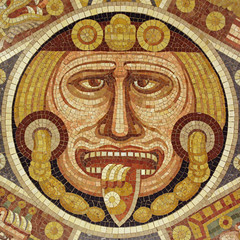http://www.theatlantic.com/international/archive/2011/03/the-enduring-power-of-virtue/73149/
Virtue, not technocratic solutions, is what I claimed our world needs more of, but I'm not saying anything new. Virtue goes back at least two-and-a-half millennia.
Western accounts of virtue start with Aristotle, but let's go back instead to Confucius. Depending on what you paid attention to in school, you might remember Confucius by the Silver Rule ("Do not do to others..."), his exotic concepts (e.g., filial piety), or a series of grammar-challenged jokes ("Confucius say...").
Confucius did have a lot to say, but if there is one principle that runs through his philosophy, it's that personal virtue is the way to the good life and the good society. He posed the cultivation of virtue as a superior alternative to the manipulation or coercion of behavior through policy.
Three virtues from Confucius's thought are the basic building blocks for all other virtues:
1. One is rén, benevolence or
compassion.
2. Another is
self-control, which Confucius believed was enforced and nurtured by adhering to
proper forms of behavior, or lǐ .
3. And, the third is
wise judgment about how to turn benevolent intention into action of a kind that avoids the proverbial road to hell.
Confucius, who in referring to ancient role models wrote:
"Because their persons were cultivated, their families were in order. Because their families were in order, their states were well-governed. Because their states were well-governed, the whole kingdom prospered. From the sovereign down to the people, all must consider the cultivation of the person the root of everything besides."

